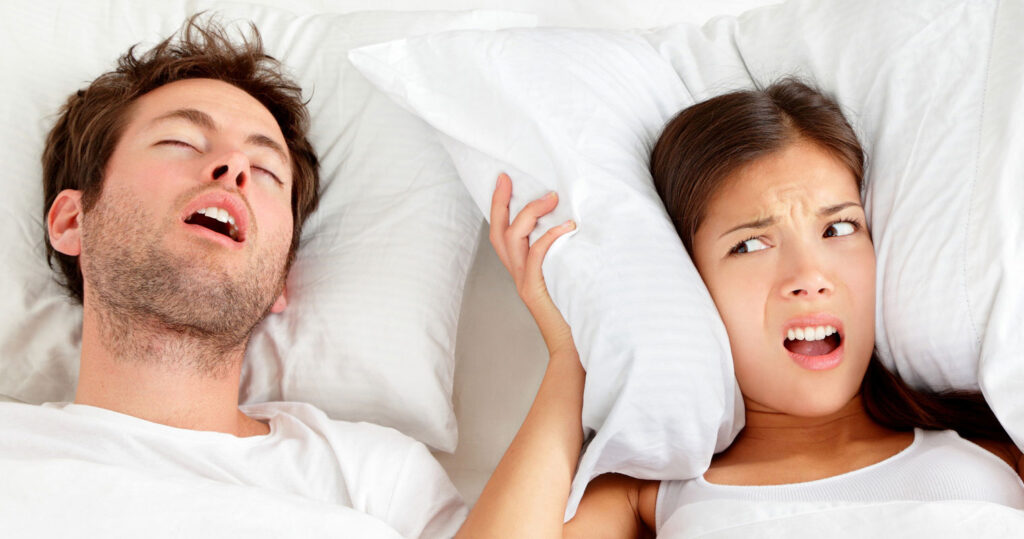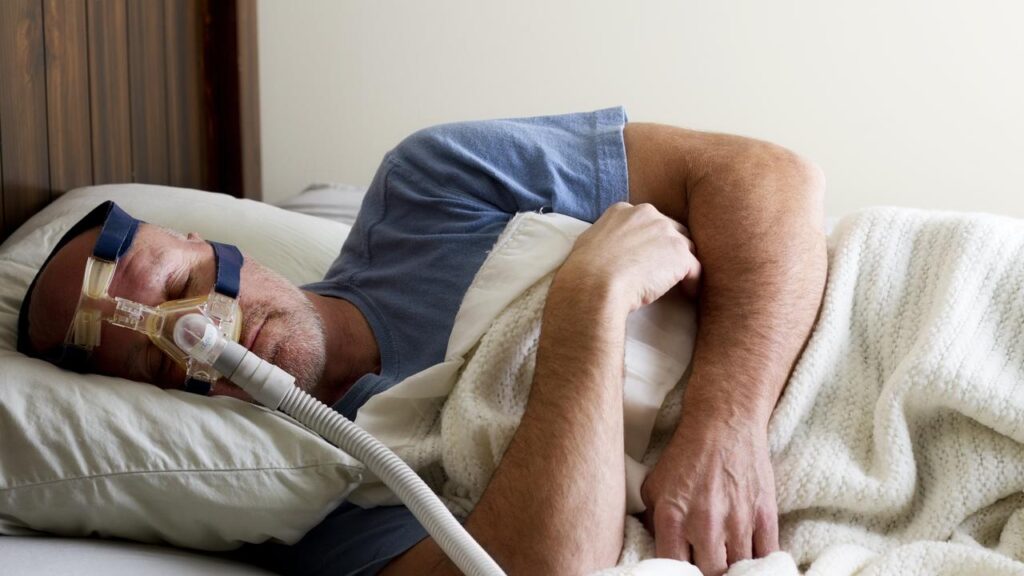Do you find yourself often feeling exhausted despite getting a full night’s sleep? Do you snore loudly and wake up gasping for breath? These could be potential symptoms of sleep apnea, a sleep disorder that affects millions of people worldwide. If you suspect you may have sleep apnea, it is crucial to schedule a sleep apnea test to determine the cause of your symptoms and to receive timely treatment. In this article, we will guide you through the process of scheduling a sleep apnea test in Melbourne, ensuring that you take the necessary steps for a restful and healthy night’s sleep.
Understanding Sleep Apnea Test
In conclusion, scheduling a sleep apnea test Melbourne is a significant step towards identifying and treating sleep apnea, a condition that can severely impact your physical and mental health. By understanding sleep apnea, recognizing its symptoms, and preparing for the test, you can take control of your sleep health. Don’t delay scheduling your sleep apnea test and start your journey towards better sleep and overall well-being.
The Basics of Sleep Apnea
Sleep apnea is a sleep disorder characterized by pauses in breathing or shallow breaths during sleep. This disruption in breathing can happen multiple times throughout the night, leading to fragmented sleep and inadequate oxygen levels in the body. Sleep apnea can be categorized into three types: obstructive sleep apnea (OSA), central sleep apnea, and complex sleep apnea syndrome.
Obstructive sleep apnea (OSA) is the most common type of sleep apnea, occurring when the throat muscles relax and block the airway during sleep. Central sleep apnea, on the other hand, is less common and involves the brain failing to signal the muscles to breathe. Complex sleep apnea syndrome is a combination of both obstructive and central sleep apnea.

Symptoms and Risks of Sleep Apnea
Recognizing the symptoms of sleep apnea is crucial in identifying the disorder. Common symptoms include loud snoring, gasping for air during sleep, excessive daytime sleepiness, morning headaches, and difficulty concentrating. If left untreated, sleep apnea can increase the risk of developing various health conditions such as high blood pressure, heart disease, stroke, and diabetes.
It is important to note that sleep apnea can affect individuals of all ages, including children. In children, symptoms may manifest differently and can include bedwetting, poor school performance, and behavioral issues. Additionally, certain factors such as obesity, smoking, alcohol consumption, and family history of sleep apnea can increase the likelihood of developing the disorder.
Importance of Sleep Apnea Testing
Health Implications of Untreated Sleep Apnea
Undiagnosed and untreated sleep apnea can have severe consequences on your overall health and wellbeing. It can lead to chronic fatigue, decreased cognitive function, and reduced quality of life. Additionally, sleep apnea increases the risk of accidents due to daytime sleepiness, making it crucial to seek proper diagnosis and treatment.
Sleep apnea is a sleep disorder characterized by pauses in breathing or shallow breaths during sleep. These interruptions can last from a few seconds to minutes and can occur multiple times per hour, disrupting the normal sleep cycle. As a result, individuals with untreated sleep apnea often experience poor sleep quality, leading to daytime drowsiness and irritability.
Benefits of Early Detection and Treatment
Fortunately, sleep apnea is a highly treatable condition. Early detection and treatment can significantly improve your sleep quality, enhance your daytime alertness, and reduce the risk of associated health problems. By scheduling a sleep apnea test, you are taking an important step towards improving your sleep and overall wellbeing.
Common treatment options for sleep apnea include continuous positive airway pressure (CPAP) therapy, oral appliances, and lifestyle modifications. CPAP therapy involves wearing a mask that delivers a constant flow of air to keep the airways open during sleep. Oral appliances are custom-fitted devices that help reposition the jaw and tongue to prevent airway obstruction. Additionally, maintaining a healthy weight, avoiding alcohol and sedatives before bedtime, and sleeping on your side can also help alleviate symptoms of sleep apnea.
Preparing for a Sleep Apnea Test
Before undergoing a sleep apnea test, it is important to understand the significance of this diagnostic procedure. Sleep apnea is a common sleep disorder characterized by pauses in breathing or shallow breaths during sleep. These interruptions can lead to fragmented sleep, daytime fatigue, and other health complications if left untreated. A polysomnography, the formal term for a sleep apnea test, provides valuable insights into your sleep patterns and helps healthcare professionals determine the most appropriate treatment plan for your specific condition. Read more about fatigue on https://www.ncbi.nlm.nih.gov/pmc/articles/PMC8474156/
What to Expect During the Test
A sleep apnea test, also known as a polysomnography, is a non-invasive procedure that measures various parameters during your sleep, such as brain waves, oxygen levels, heart rate, and eye movements. The test is typically conducted overnight in a sleep clinic or a specialized sleep center. During the test, sensors and electrodes will be attached to your scalp, face, chest, and legs to monitor your body’s activity throughout the night.
Furthermore, a technician will be present to observe and analyze the data collected during the test. This professional will ensure that the sensors are properly connected and that the equipment is functioning correctly to capture accurate information about your sleep patterns. While the idea of being monitored while sleeping may seem daunting, rest assured that the goal of the test is to provide valuable insights into your sleep quality and identify any potential issues that may be affecting your overall well-being.
Tips for the Night Before Your Test
To ensure accurate results from your sleep apnea test, it is essential to follow a few simple steps the night before. Avoid consuming alcohol, caffeine, and heavy meals close to bedtime. Adhere to your usual sleep routine, and make sure to arrive at the sleep clinic well-rested. Bringing comfortable sleepwear and personal items from home can help create a familiar sleeping environment, further aiding in the accuracy of the test results.
How to Schedule a Sleep Apnea Test
Finding a Sleep Clinic in Melbourne
Locating a specialized sleep clinic in Melbourne is the first step towards scheduling a sleep apnea test. Start by conducting a search online or ask your primary care physician for recommendations. Look for clinics that have experience in diagnosing and treating sleep disorders, such as sleep apnea. It is also essential to check if the clinic accepts your health insurance, as this can affect the cost of the test and subsequent treatments.
When researching sleep clinics, consider factors such as the qualifications of the medical staff, the types of sleep studies offered, and the overall reputation of the clinic within the medical community. Reading patient reviews and testimonials can also provide valuable insights into the quality of care and services offered by a particular clinic. To learn more about qualifications click here.
Making an Appointment: Step-by-step Guide
Once you have identified potential sleep clinics, it’s time to make an appointment for your sleep apnea test. Most clinics have dedicated staff available to handle appointment scheduling. Provide them with your personal and insurance information, and let them know your preferred appointment date and time. They will work with you to find a suitable time slot that accommodates your schedule. Don’t hesitate to ask any questions or seek clarification if needed.
During the appointment scheduling process, inquire about any pre-appointment instructions you need to follow, such as avoiding caffeine or certain medications before the test. It’s also a good idea to ask about what to expect during the sleep apnea test itself, including the duration of the test, the equipment used, and any potential side effects. Being well-informed and prepared can help you feel more comfortable and confident on the day of the test.
After the Sleep Apnea Test
Understanding Your Test Results
After completing your sleep apnea test, the results will be analyzed and interpreted by a qualified sleep specialist. They will provide you with a detailed report discussing the findings and diagnosis. If sleep apnea is detected, the report will indicate the severity of your condition, helping determine the appropriate course of treatment.
Upon receiving your test results, it is essential to schedule a follow-up appointment with your healthcare provider to review the findings in detail. The specialist will explain the implications of the results, answer any questions you may have, and work with you to develop a personalized treatment plan tailored to your specific needs.

Treatment Options for Sleep Apnea
There are various treatment options available for sleep apnea, depending on the severity and individual needs. Continuous positive airway pressure (CPAP) therapy is the most common and effective treatment method. It involves wearing a mask over your nose or mouth during sleep, delivering a continuous stream of air to keep the airways open. Other treatment options may include lifestyle changes, oral appliances, or surgeries.
It is crucial to explore all available treatment options with your healthcare provider to determine the most suitable approach for managing your sleep apnea. Compliance with the recommended treatment plan is key to effectively managing the condition and improving your quality of sleep and overall health.
Read more on: The Benefits of a Home Sleep Test in Australia

